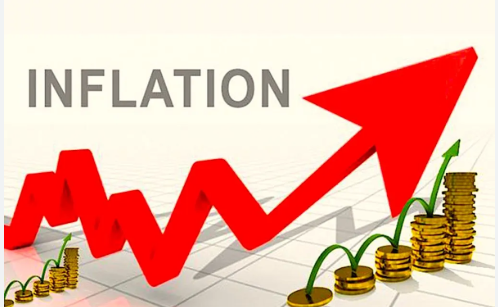THE NATIONAL Bureau of Statistics (NBS) has revealed that Nigeria’s inflation rate surged to 34.60% in November 2024, up from 33.88% recorded in October.
This 0.72% increase marks a concerning upward trend, with inflation now 6.40% higher than the 28.20% recorded in November 2023.
The NBS Consumer Price Index (CPI) report highlighted a sharp rise in food inflation, which hit 39.93% year-on-year in November, up by 7.08% from the previous year’s 32.84%.
On a month-on-month basis, food inflation rose by 2.98% in November, the NBS says marginally higher than October’s 2.94%.
Key drivers of this food inflation include skyrocketing prices of staple items such as rice, millet, yam flour, goat meat, frozen chicken, dried fish, powdered milk, and eggs.
The cost of living has become a significant burden for Nigerians, with many households struggling to afford basic necessities amidst the worst economic crisis since independence.
Economic analysts attribute the escalating inflation to the removal of petrol subsidies and the floating of the naira, two policies implemented by President Bola Tinubu shortly after his inauguration in May 2023.
The removal of subsidies caused petrol prices to more than quadruple, rising from under ₦200 per litre to over ₦1,100 in several parts of the country. Simultaneously, the naira’s value plummeted, weakening from ₦700/$ to as low as ₦1,600/$.
The NBS report underscores the impact of these policies on the economy. While the World Bank and International Monetary Fund had long called for these reforms to address structural inefficiencies, their implementation has left Nigeria grappling with severe inflationary pressures.
Food prices, transportation costs, and utility bills continue to climb, squeezing the purchasing power of ordinary Nigerians according to the NBS.
The agency notes that the rising cost of living has ignited widespread frustration, with citizens calling for targeted government interventions to alleviate the burden.
Similarly, economists argue that while subsidy removal and currency floating are necessary for long-term economic stability, immediate measures are needed to cushion the effects on vulnerable populations.
At JKNewsMedia, our dedication to delivering reliable news and insightful information to our cherished readers remains unwavering. Every day, we strive to provide you with top-notch content that informs and enlightens. By donating to JKNewsMedia, you directly contribute to our mission of delivering quality journalism that empowers and informs. Your support fuels our commitment to bringing you the latest updates and in-depth analysis. Let's continue to uphold the highest standards of journalism and serve our community with integrity and dedication. Thank you for being a part of the JKNewsMedia family and for your ongoing support.





